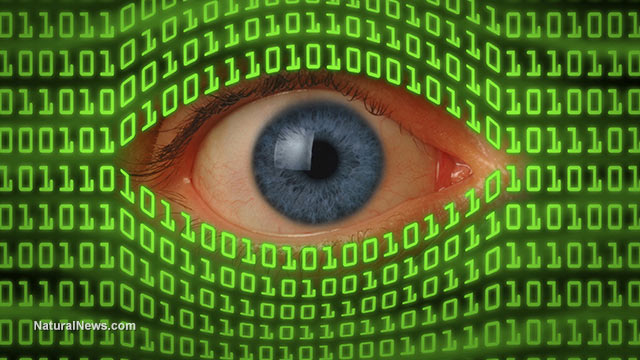Company works to use ‘computer vision’ to help the visually impaired see
01/01/2017 / By Howard Roark

A game-changing technological innovation for the blind has been developed by a tech startup, Eyra. The wearable assistant, Horus, consists of a headset with cameras and a pocket processor with battery. Horus utilizes the same technology that enables auto-drive cars and drones to navigate. Here we share good news regarding the application of artificial intelligence, versus warnings of cyborg soldiers and job-stealing robots.
From Eyra’s website Horus.tech, “Horus is a wearable device that observes, understands and describes the environment to the person using it, providing useful information with the right timing and in a discreet way using bone conduction. Horus is able to read texts, to recognize faces, objects and much more.
“Thanks to the latest advances in artificial intelligence, Horus is able to describe what the cameras are seeing. Whether it is a postcard, a photograph or a landscape, the device provides a short description of what is in front of it.”
Here are some details about the mechanisms that bring ‘sight’ to the blind:
Text recognition
Horus can recognize and read aloud printed texts, including on curved surfaces. When Horus acquires the targeted text, it will begin to recite, and at that point it is not required that the camera remain directed at the text. Horus also gives audible cues to the user to keep the text properly framed.
Face recognition
Utilizing facial feature metrics, Horus can learn an unknown face within seconds and add that person into its database, upon spoken request. After a face is learned, and upon subsequently detecting that face, Horus will at once notify the user.
Support our mission and enhance your own self-reliance: The laboratory-verified Organic Emergency Survival Bucket provides certified organic, high-nutrition storable food for emergency preparedness. Completely free of corn syrup, MSG, GMOs and other food toxins. Ultra-clean solution for years of food security. Learn more at the Health Ranger Store.
Object recognition
If the user simply rotates the item in front of the cameras, Horus can perceive an object’s appearance and shape in three dimensions. Since Horus can identify an object from various angles, it can help the user recognize similarly shaped objects. As with text recognition, if needed, Horus will prompt the user to move the object into the cameras’ view.
Mobility assistance
When moving along a path, the user will be warned by Horus of any obstacles, via an alert sound. Its pitch, intensity, 3D positioning, and frequency of repetition will differ, depending on the object’s location and distance.
Tech website Engadget states:
“The startup was created by a pair of students from the University of Genoa who were looking to develop a computer vision system. While their research was centered around enabling robots to navigate, they found the technology had other applications. In the subsequent two years, they’ve been working on producing a portable version of the gear, and think that they’re getting close to completion. In the future, the device is also expected to offer up scene description that’ll offer users a greater ability to ‘see.’
“Should the pair secure the necessary funding, Horus will be released at some point in the near future, although it’ll be pretty pricey. The creators feel like the device will retail for something between €1,500 and €2,000 Euro, although if it can deliver on its promise, it may be money well spent.”
A bright future
Today’s world is in some ways negatively impacted by technology, as with ever-encroaching police state technocracy and breaches of privacy. But in many ways our lives are enhanced beyond any historical comparison. For example, the average working class person in the developed world, even those below the poverty level, has a higher standard of living than many kings of eras past. A word to the wise: be wary of present dangers to our freedoms and independence, but be ever hopeful of a better future, thanks to humanity’s propensity for technological advances that will make our lives vastly more enriched and livable.
Sources:
Tagged Under: tech




















